-
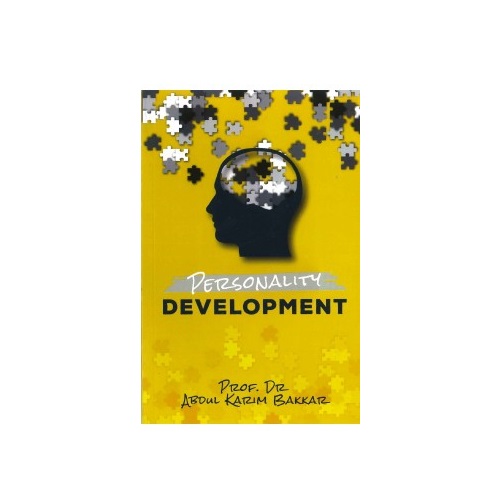
Personality Development
₦5,000From an Islamic vision, the human being is the center of universe. A quick review of the verses of the Glorious Quran and the Sunnah, statements, actions and traditions of Allah’s Messenger (SAW), reveals more than 90% of both revolve around the human being. There are very few verses in the Glorious Quran that address the improvement of the environment and the inhabitants and construction of the earth. But the majority of the verses of the Glorious Quran and the majority of the efforts done by the Prophet of Islam; Mohammad (SAW) throughout his blessed life revolve around the reformation of the human being. If the human being is reformed, then, the entire life would be reformed and fine.
-

Kaplan SAT : Strategies, Practice And Review-2016-2017
₦7,000The kaplan SAT 2016-2017 is the most recent editions, which helps to prepare students for the SAT exam, This edition includes:
Practice Tests
Diagnostic test to help you target your SAT studying
Detailed answer explations
Proving score raising strategies
Additional practice online
CD Rom
-

201 Secrets to Healthy Living: A Treasury of Life-Saving Health Secrets from 27 Healthcare Experts
₦3,500Healthy Living Made Easy
A reference guide to great health, 201 Secrets to Healthy Living gives you the keys to a happy, healthy, and long life from Siloam’s top-selling authors. These popular and professional doctors and health-care providers share their knowledge with easy-to-access information that will help you live in health and wellness. You will discover…- The telltale heart attack symptoms you may be ignoring
- How you can double your immunity to colds and flu
- Natural ways to slow mental aging and increase memory
- How to avoid obesity and diabetes in just minutes a day
- Cancer treatments your doctor may not have told you about
-
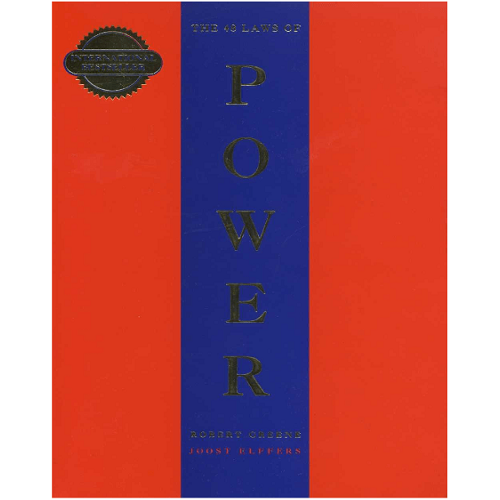
The 48 Laws of Power by Robert Greene – Paperback (Big)
₦3,500Amoral, cunning, ruthless, and instructive, The 48 Laws of Power is the definitive manual for anyone interested in gaining, observing, or defending against ultimate control.
In the book that People magazine proclaimed “beguiling” and “fascinating,” Robert Greene and Joost Elffers have distilled three thousand years of the history of power into 48 essential laws by drawing from the philosophies of Machiavelli, Sun Tzu, and Carl Von Clausewitz and also from the lives of figures ranging from Henry Kissinger to P.T. Barnum.
Some laws teach the need for prudence (“Law 1: Never Outshine the Master”), others teach the value of confidence (“Law 28: Enter Action with Boldness”), and many recommend absolute self-preservation (“Law 15: Crush Your Enemy Totally”). Every law, though, has one thing in common: an interest in total domination. In a bold and arresting two-color package, The 48 Laws of Power is ideal whether your aim is conquest, self-defense, or simply to understand the rules of the game.
-
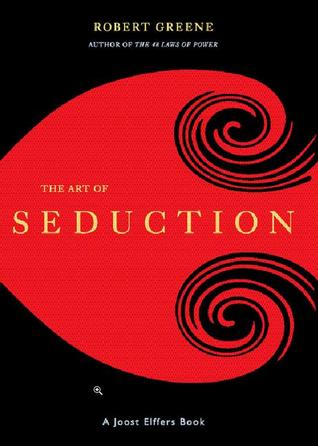
The Art of Seduction
₦4,500Which sort of seducer could you be: *Siren? *Rake? *Cold Coquette? *Star? *Comedian? *Charismatic? or *Saint? This book will show you which. ‘Charm, persuasion, the ability to create illusions: these are some of the many dazzling gifts of the Seducer, the compelling figure who is able to manipulate, mislead and give pleasure all at once. When raised to the level of art, seduction, an indirect and subtle form of power, has toppled empires, won elections and enslaved great minds. In this beautiful, sensually designed book, Greene unearths the two sides of seduction: the characters and the process. Discover who you, or your pursuer, most resembles. Learn, too, the pitfalls of the anti-Seducer. In part II, immerse yourself in the twenty-four manoeuvres and strategies of the seductive process, the ritual by which a seducer gains mastery over their target. Understand how to ‘Choose the Right Victim’, ‘Appear to Be an Object of Desire’ and ‘Confuse Desire and Reality’. In addition, Greene provides instruction on how to identify victims by type. Each fascinating character and each cunning tactic demonstrates a fundamental truth about who we are, and the targets we’ve become – or hope to win over. The Art of Seduction is an indispensable primer on the essence of one of history’s greatest weapons and the ultimate power trip.
-
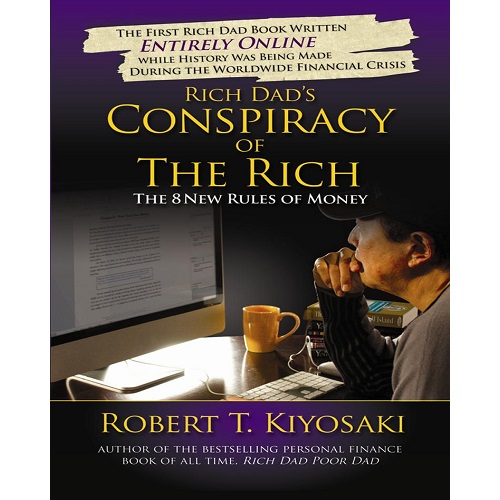
Rich Dad’s Conspiracy of the Rich: The 8 New Rules of Money
₦1,500In late January, 2009, Robert Kiyosaki launched CONSPIRACY OF THE RICH – a free online book which was written in serial basis to help people understand how the current recession came about, and what they need to learn on how to survive through the coming rough years.
An unprecedented publishing event for Kiyosaki and The Rich Dad Company, CONSPIRACY OF THE RICH is an interactive, “Wiki-style” project in which Kiyosaki has invited feedback, commentary, and questions from readers across the globe.
The response so far has been totally fantastic. Millions and millions of readers have flocked to the website (www.conspiracyoftherich.com) to read what Robert has to say about the recession, and the readers have posted thousands of comments. Some of those reader comments will even be included in the final tradepaper version.
-
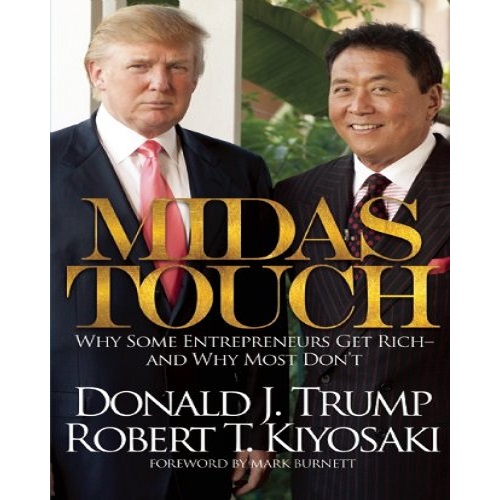
Midas Touch: Why Some Entrepreneurs Get Rich and Why Most Don’t
₦1,500In this title, two entrepreneurial Icons share experiences and insights into creating and building successful businesses. What makes some business owners wildly successful? What separates the entrepreneurs who build businesses from ones who just seem to create more work for themselves? How, exactly do the world’s most prominent business builders seem to hit home run after home run? The answer: They have the Midas Touch. Donald Trump and Robert Kiyosaki believe the world needs more entrepreneurs. For the first time, two of the world’s most successful and influential entrepreneurs will share their own Midas Touch secrets. Secrets that will both inspire you to find and fulfill your passion as well as provide you with the hands-on guidance you need to be successful. Through their real life stories of success, failure, perseverance and purpose, you’ll discover how they do it and whether or not you have what it takes to drive your own entrepreneurial success.
-
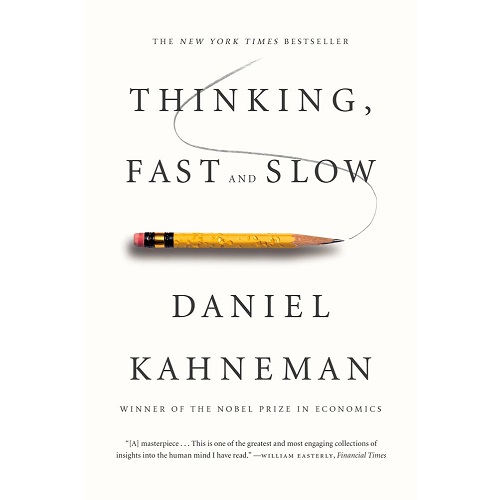
Thinking, Fast and Slow- by Daniel Kahneman
₦4,000Engaging the reader in a lively conversation about how we think, Kahneman reveals where we can and cannot trust our intuitions and how we can tap into the benefits of slow thinking. He offers practical and enlightening insights into how choices are made in both our business and our personal lives―and how we can use different techniques to guard against the mental glitches that often get us into trouble. Topping bestseller lists for almost ten years, Thinking, Fast and Slow is a contemporary classic, an essential book that has changed the lives of millions of readers.
Major New York Times bestseller
Winner of the National Academy of Sciences Best Book Award in 2012
Selected by the New York Times Book Review as one of the ten best books of 2011
A Globe and Mail Best Books of the Year 2011 Title
One of The Economist‘s 2011 Books of the Year
One of The Wall Street Journal‘s Best Nonfiction Books of the Year 2011
2013 Presidential Medal of Freedom Recipient
Kahneman’s work with Amos Tversky is the subject of Michael Lewis’s The Undoing Project: A Friendship That Changed Our MindsIn the international bestseller, Thinking, Fast and Slow, Daniel Kahneman, the renowned psychologist and winner of the Nobel Prize in Economics, takes us on a groundbreaking tour of the mind and explains the two systems that drive the way we think. System 1 is fast, intuitive, and emotional; System 2 is slower, more deliberative, and more logical. The impact of overconfidence on corporate strategies, the difficulties of predicting what will make us happy in the future, the profound effect of cognitive biases on everything from playing the stock market to planning our next vacation―each of these can be understood only by knowing how the two systems shape our judgments and decisions.
Engaging the reader in a lively conversation about how we think, Kahneman reveals where we can and cannot trust our intuitions and how we can tap into the benefits of slow thinking. He offers practical and enlightening insights into how choices are made in both our business and our personal lives―and how we can use different techniques to guard against the mental glitches that often get us into trouble. Winner of the National Academy of Sciences Best Book Award and the Los Angeles Times Book Prize and selected by The New York Times Book Review as one of the ten best books of 2011, Thinking, Fast and Slow is destined to be a classic.
-
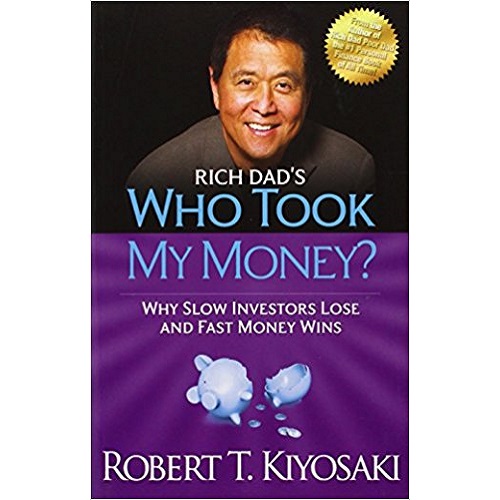
Rich Dad’s Who Took My Money?: Why Slow Investors Lose and Fast Money Wins! (Rich Dad’s)
₦1,500Learn what financial advisors don’t want you to know!
Robert’s rich dad often told him: “The faster your money moves, the higher the returns and the lower your risk.” Conventional financial wisdom recommends that you save money and invest for the long term. In other words: park your money.
That was not rich dad’s advice. He taught Robert to increase the velocity of my money. And, even if you start small, it’s advice that anyone can follow and benefit from.
-
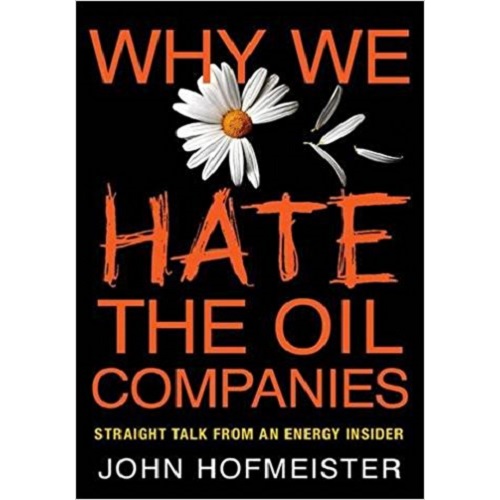
Why We Hate the Oil Companies: Straight Talk from an Energy Insider
₦3,000As president of Shell Oil, John Hofmeister was known for being a straight shooter, willing to challenge his peers throughout the industry. Now, he’s a man on a mission, the founder of Citizens for Affordable Energy, crisscrossing the country in a grassroots campaign to change the way we look at energy in this country. While pundits proffer false new promises of green energy independence, or flatly deny the existence of a problem, Hofmeister offers an insider’s view of what’s behind the energy companies’ posturing, and how politicians use energy misinformation, disinformation, and lack of information to get and stay elected. He tackles the energy controversy head-on, without regard for political correctness. He also provides a new framework for solving difficult problems, identifying solutions that will lead to a future of comfortable lifestyles, affordable and clean energy, environmental protection, and sustained economic competitiveness.
-

Why Nations Fail By Daron Acemoglu
₦5,500Why are some nations more prosperous than others? Why Nations Fail sets out to answer this question, with a compelling and elegantly argued new theory: that it is not down to climate, geography or culture, but because of institutions.

